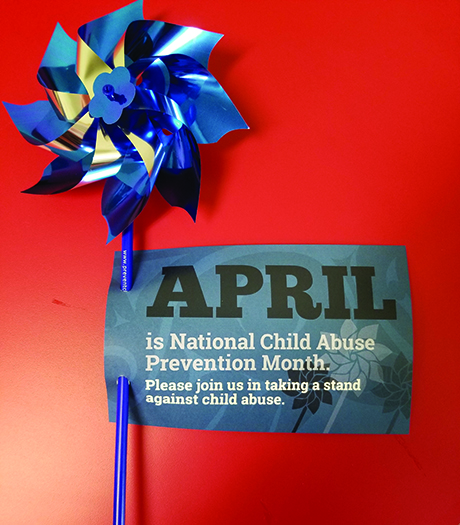By Kalvin Valdillez, Tulalip News
There was no shortage of tears from the small gathering of Tulalip citizens during the recent screening of the movie Wind River on the night of April 13. The event, held at the Mission Highlands Community Center, is Tulalip Family Advocacy’s latest effort in bringing awareness, education and support to the community during National Child Abuse Prevention Month and National Sexual Abuse Awareness Month.
The critically acclaimed movie follows a Fish and Wildlife tracker and an FBI agent as they investigate the death of a young Native American woman on the Wind River Reservation, home to both Arapaho and Shoshone tribes in Wyoming. The movie depicts a lot of the hardships Native communities experience such as substance abuse, race relations and violence. However, Wind River is based upon the unfortunate reality of the many unsolved cases of missing and murdered Indigenous women. The film also addresses the often complicated jurisdiction issue between tribal police and government officials, as well as the lack of officers on reservations which often stalls many of these cases.
Although the event had a small turnout, everybody in attendance had yet to see the film prior to the movie night. This allowed the viewers to experience a flurry of emotions during the fast-paced action-mystery-drama. After the film ended, the crowd needed to take a personal moment to wipe away tears before participating in an open discussion about Wind River.
Tulalip Child Advocacy Center Forensic Interview Specialist, Sydney Gilbert, asked the movie goers a series of questions that allowed the community members to relate and reflect on the issues brought to light by the movie.
“Watching this was heartbreaking and enlightening,” expressed an anonymous community member. “It should definitely be watched because it’s important. It shows the hopelessness many of our people feel living out on reservations. A lot of us can feel like there’s no way out on the rez, out of the rez life. In many ways, our people have adapted to numbing. And with all these deaths, whether it’s [a murder], drug overdose or suicide, you don’t have time to recover and heal. It’s almost like that’s our lifestyle now and numbing’s the new norm.”
The discussion was a personal, intimate hour-long conversation where the participants brainstormed ideas about how to overcome some of these issues as a community and spoke about how and when these situations first became problems for Native Americans. The group also shared personal stories and suggested new ways to help put an end to violence against children and sexual abuse within Indigenous communities.
One community member stressed that education is key for both prevention and healing when dealing with such serious topics, stating, “It’s generational trauma. This is something that happened in the boarding schools and it’s been a never-ending cycle. It’s important for our people to know that’s where it stems from in order to deal with those emotions and move forward because those are huge burdens that we are having to carry.”
“The reason we chose Wind River is because not only is April Child Abuse Prevention Month, it’s also Sexual Abuse Awareness month,” states Sydney. “We felt that this film touches on that subject and opens up an important discussion around sexual assault in Indian Country.”
The film has been an eye-opener for many of its viewers across the nation. Most recently a law was signed here in Washington State that aims to prevent as well as provide assistance for the missing and murdered Indigenous women in this state. The law was passed months after the release of the film, when a government official realized how big of an ongoing issue this is for Native women, upon seeing the movie and several rallies across the state. The new law goes into effect this June and requires Washington State Patrol as well as the Governor’s Office of Indian Affairs to work with tribal law enforcement to access more information and resources for reporting and identifying missing Native women in this state.
Studies show that over 86% of Native women nationswide experience sexual or domestic violence in their lifetime, doubling the average amongst women of other races. Unfortunately, the number of missing and murdered Indigenous women remains unknown.
Family Advocacy will continue their month of awareness by distributing blue pinwheels, which represent the prevention of childhood abuse, to the entire community throughout the remainder of the month and will end with the Helping Our Sisters Heal gathering at the Tulalip Dining Hall from 11:00 a.m. to 2:00 p.m. on April 28.
